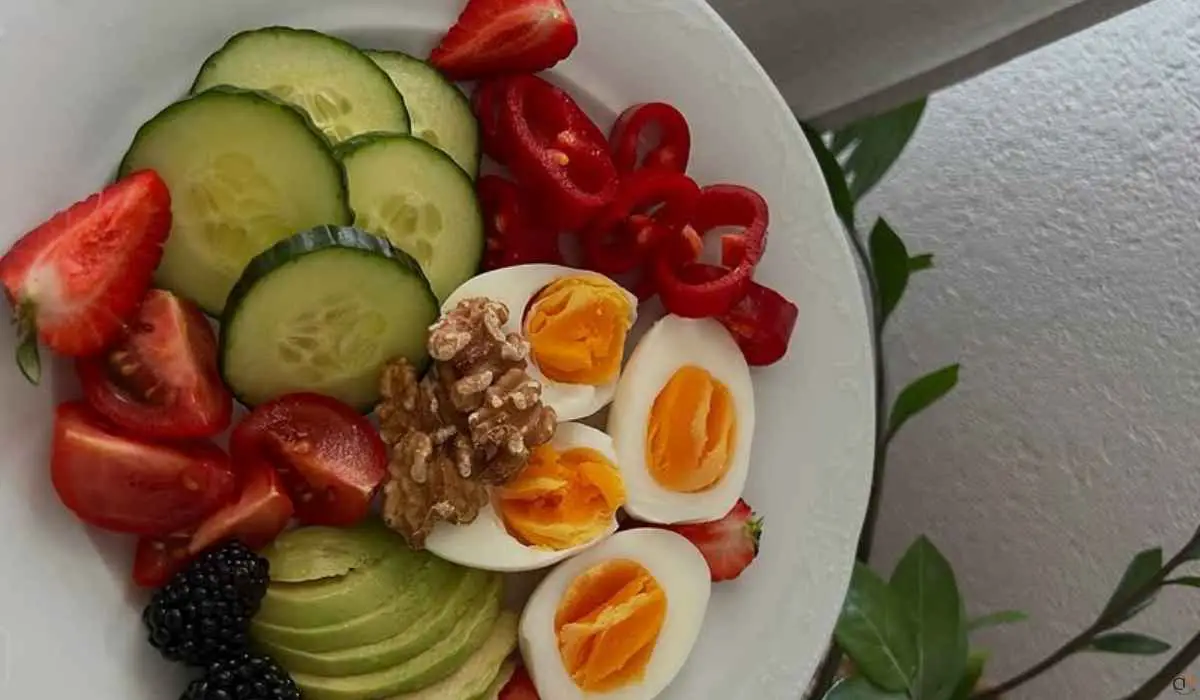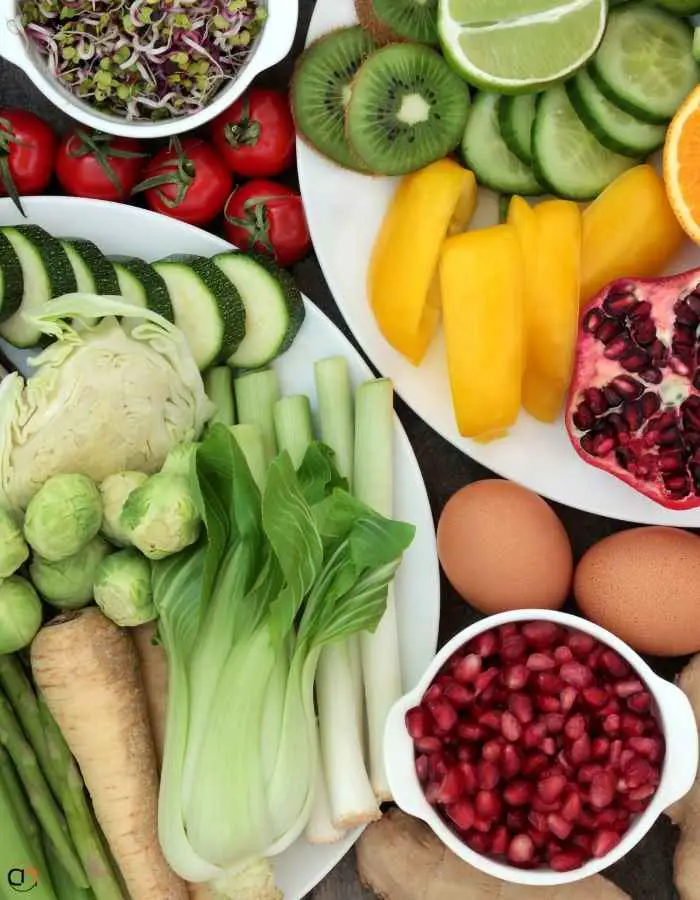20 Clean Food Ideas

Looking to feel your best and boost your energy? Clean eating focuses on enjoying whole, minimally processed foods that nourish your body and support overall health.
In this blog, we’ll explore what Clean Food means, why it matters, and how you can easily grab it into your daily meals for a happier, healthier lifestyle.
What Is Clean Food?
Clean food refers to eating whole, natural foods that are minimally processed and free from artificial additives, preservatives, and refined ingredients. The focus is on consuming fresh fruits, vegetables, whole grains, lean proteins, and healthy fats in their most natural state.
Clean eating encourages choosing foods that are as close to their original form as possible—think fresh produce instead of canned, whole grains instead of refined, and homemade meals over processed convenience foods.
It’s less about strict rules and more about nourishing your body with simple, wholesome ingredients that support overall health and well-being.
Benefits of Clean Food:
Eating clean offers a wide range of health benefits that can improve your overall well-being. By focusing on whole, nutrient-rich foods, clean eating can boost your energy levels and improve digestion, helping you feel more vibrant throughout the day.
It supports healthy weight management by reducing the intake of empty calories and unhealthy fats. Clean food also promotes better mental clarity and mood stability thanks to balanced blood sugar levels and reduced inflammation.
Additionally, this way of eating can lower your risk of chronic diseases such as heart disease, diabetes, and certain cancers by providing antioxidants, vitamins, and minerals essential for your body’s optimal function.
20 Clean Food:
Here’s a list of 20 clean food that are both nutritious and delicious, perfect for anyone looking to eat healthier and feel great. These whole, minimally processed foods provide essential vitamins, minerals, and healthy fats to support your body’s natural functions.
-
Spinach
-
Kale
-
Broccoli
-
Carrots
-
Blueberries
-
Apples
-
Quinoa
-
Brown rice
-
Sweet potatoes
-
Chickpeas
-
Lentils
-
Chicken breast (organic/free-range)
-
Wild-caught salmon
-
Eggs (preferably free-range)
-
Almonds
-
Walnuts
-
Avocado
-
Extra virgin olive oil
-
Greek yogurt (plain, unsweetened)
-
Cucumber
Grabbing these clean food into your daily meals can help you maintain energy, improve digestion, and boost overall wellness. Start with a few favorites and gradually build your clean eating habits for lasting health benefits.
Foods to Avoid or Limit:
Here are some common foods to avoid or limit:
-
Sugary sodas and sweetened beverages
-
Packaged snacks like chips and cookies
-
Refined grains such as white bread and pastries
-
Fast food and deep-fried items
-
Processed meats like sausages and deli meats
-
Artificial sweeteners and additives
-
Excessive salt and sodium-rich processed foods
-
Trans fats found in some margarines and baked goods
By cutting back on these foods, you give your body the chance to thrive on cleaner, more nourishing choices. Would you like tips on how to swap these out for healthier alternatives?
Tips for Incorporating Clean Food:
Clean Food Recipes and Meal Ideas:
Here are three simple and delicious clean food meal ideas to inspire your healthy eating journey:
-
Breakfast: Avocado toast on whole-grain bread topped with a poached egg and a sprinkle of chili flakes — a perfect balance of healthy fats and protein to start your day.
-
Lunch: Mixed greens salad with grilled chicken, cherry tomatoes, cucumbers, quinoa, and a light lemon-olive oil vinaigrette for a refreshing and nutrient-packed meal.
-
Dinner: Baked wild-caught salmon with roasted sweet potatoes and steamed asparagus, seasoned with herbs and a squeeze of fresh lemon for a flavorful, clean dinner option.
These meals are easy to prepare, nourishing, and full of natural ingredients that support your overall wellness.
Myths and Misconceptions About Clean Eating:
Clean eating is often misunderstood, leading to some common myths that can discourage people from trying it.
One popular misconception is that clean eating is expensive and only for those with a big budget—when in reality, simple whole foods like beans, grains, and seasonal veggies can be very affordable.
Another myth is that clean eating means cutting out entire food groups or being overly restrictive, but it’s more about choosing quality, minimally processed options rather than eliminating foods completely.
Some also believe it’s time-consuming or complicated, yet with a little planning and prep, clean eating can easily fit into even the busiest lifestyles.
Understanding these myths helps you approach clean eating with a balanced, realistic mindset.
Key Take Away:
Clean eating is all about choosing whole, minimally processed foods that nourish your body and support long-term health.
By focusing on simple, natural ingredients and avoiding highly processed items, you can boost your energy, improve digestion, and reduce the risk of chronic illnesses — all while enjoying delicious meals.
CTA:
- Ready to start your clean eating journey? Begin by swapping one processed food for a whole food today and explore our clean food recipes for inspiration.
- Share your favorite clean meals or tips in the comments below — let’s support each other toward healthier living!
Read Next: 30 4th Of July Food
FAQs:
Q. Is clean eating expensive?
Not necessarily. Buying seasonal produce, whole grains, and beans can be budget-friendly and nutritious.
Q. Can I still eat out while following clean eating?
Yes! Look for menu items made with fresh, whole ingredients and avoid heavily processed dishes.
Q. Do I have to cut out sugar completely?
No, clean eating encourages limiting added sugars, but natural sugars from fruits are perfectly fine in moderation.
Q. Is clean eating suitable for all diets?
Yes, it can be adapted to vegetarian, vegan, gluten-free, and other dietary preferences.
Q. How do I handle cravings for processed foods?
Try healthier swaps like fruit or nuts, and focus on balanced meals to keep you satisfied longer.






